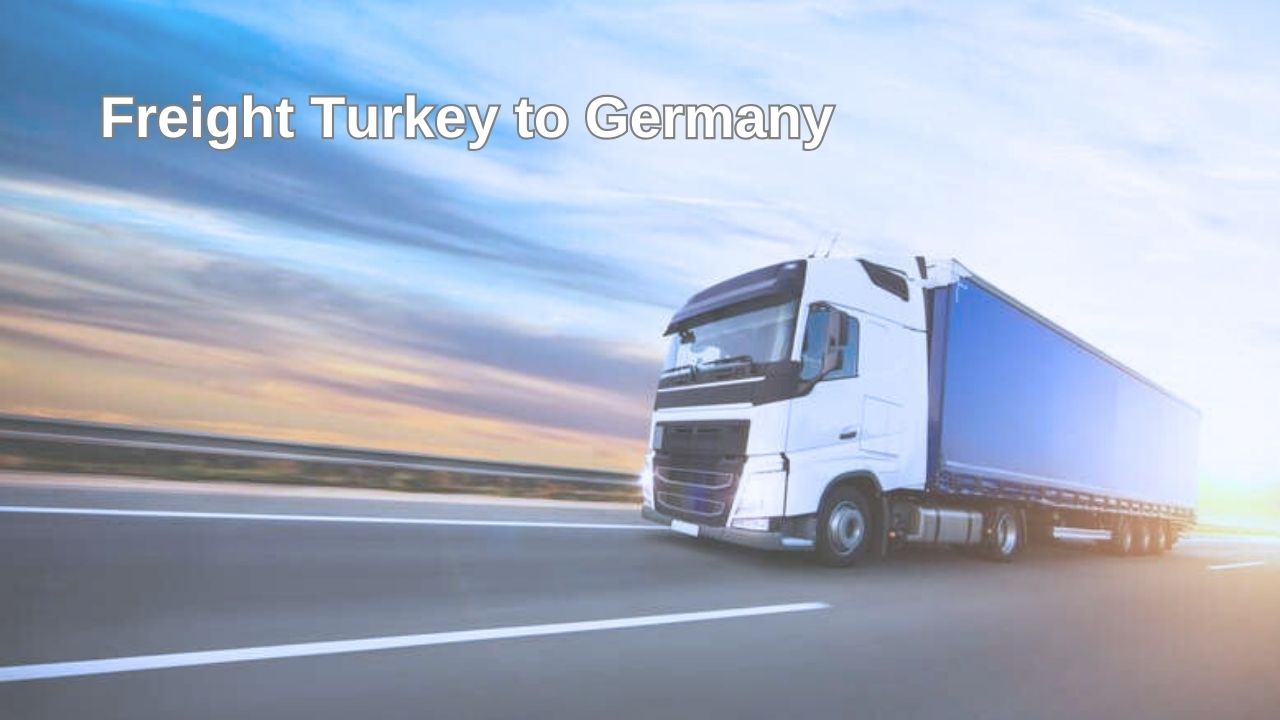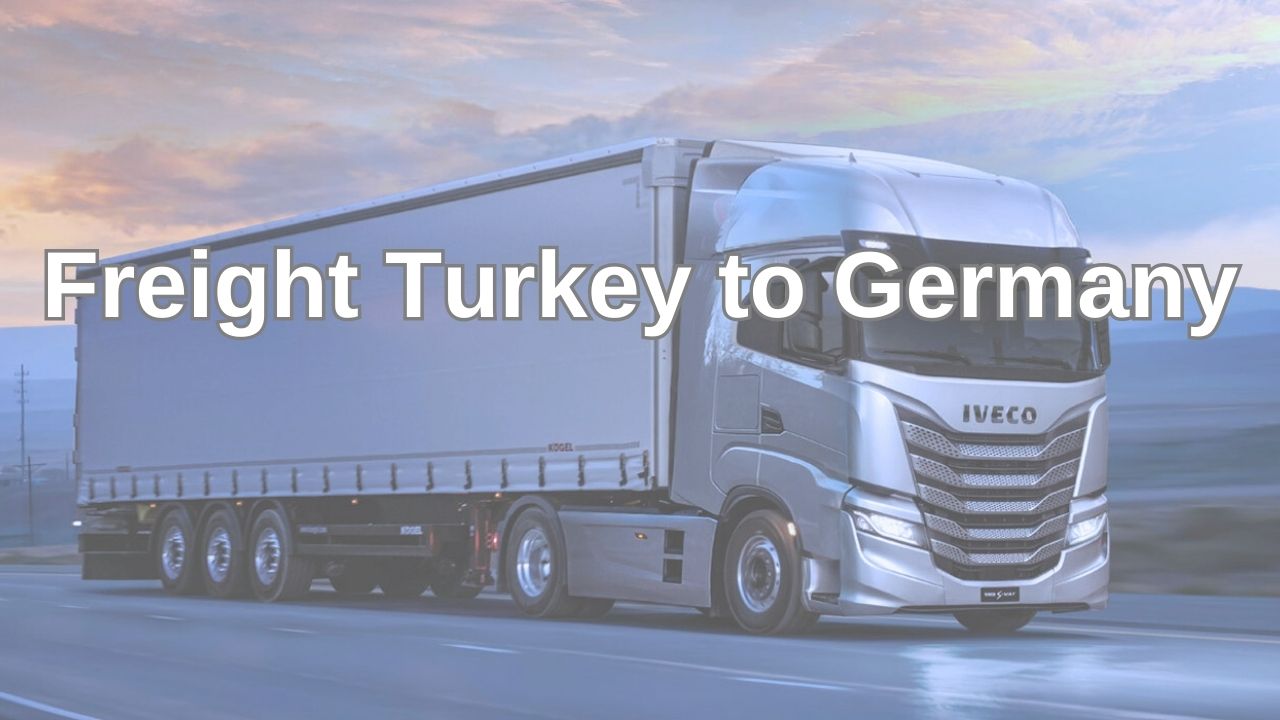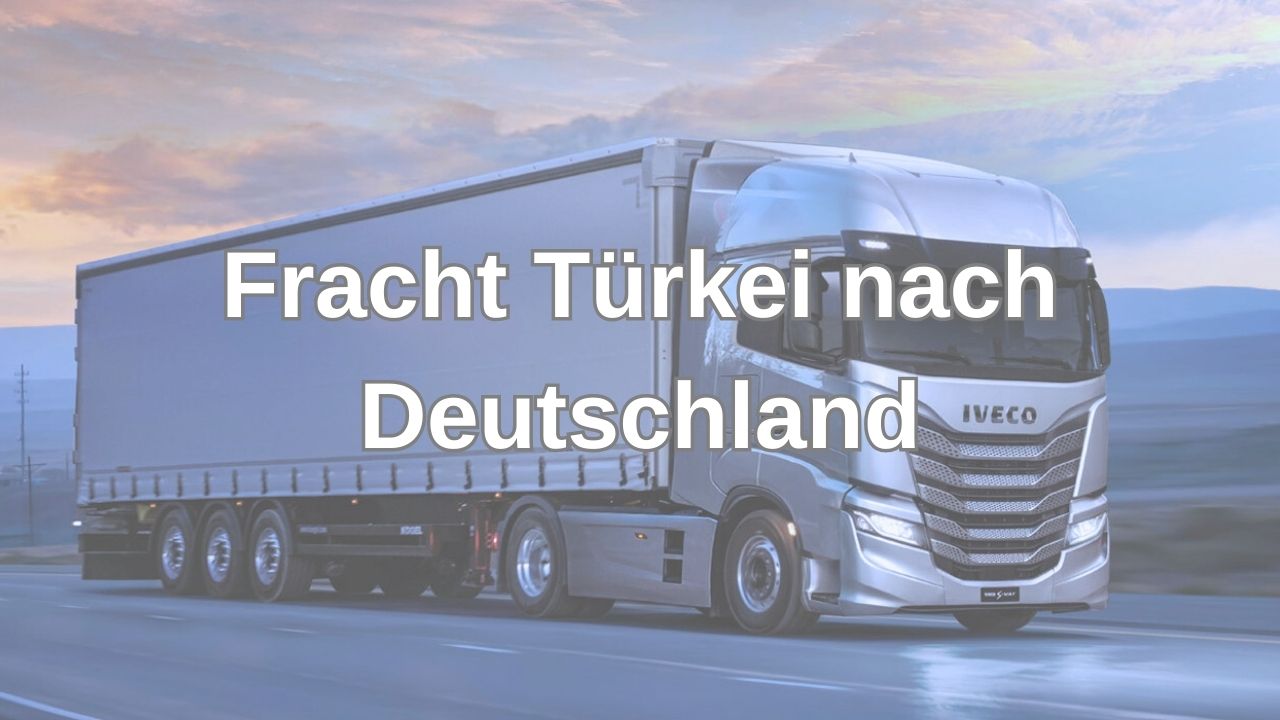News
Freight Turkey to Germany
What are the most effective methods for freight transportation from Turkey to Germany?
Sea freight transport from Turkey to Germany is an economical option for large volumes of cargo. Sea freight generally takes longer but provides a cost advantage. Sea freight from major ports in Turkey (e.g. Istanbul, Izmir) can reach major ports in Germany (Hamburg, Bremen). Container transport is suitable for large volumes of cargo and offers a variety of transportation options.
Road transport between Turkey and Germany is particularly suitable for situations requiring fast delivery. This method is particularly preferred for small and medium-sized loads and allows door-to-door delivery of loads. Road transport offers direct access to destinations both within Turkey and within Germany, thanks to special routes organized by logistics companies.
Air transportation is the most suitable option for fast and urgent deliveries. Air transportation from major airports in Turkey (Istanbul Airport, Antalya Airport) reaches major airports in Germany (Frankfurt, Munich) and provides fast transportation of cargo. However, air transportation can often be more costly than other methods.
Rail transport is an economical option, especially for large volumes and heavy loads. Rail transport between Turkey and Germany provides safe and regular transport thanks to Europe's extensive railway network. This method is often used in combination with sea and road transport and can reduce costs over long distances.
Combining multiple modes of transport can also be an effective strategy for freight transport from Turkey to Germany. For example, freight brought to Germany by sea can be delivered to final delivery points by road. Combined transport can optimize costs and shorten delivery times by combining the advantages of various modes of transport.
Each of these methods offers advantages depending on specific needs and types of cargo. To choose the most suitable transportation method for your needs, you should consider the amount of cargo, delivery time and costs. By carrying out cargo transportation with the appropriate method, you can achieve the best results in terms of both time and cost.

How can you optimize costs in freight transportation between Türkiye and Germany?
A number of strategies can be implemented to optimize costs, increase the efficiency of logistics processes and reduce total costs in freight transport between Turkey and Germany. First of all, it is important to choose the right transportation modes; sea transportation generally provides a cost advantage for large volumes of cargo, while air transportation is more suitable for situations requiring fast delivery. Road transportation is an economical option for medium-sized cargo.
Freight consolidation, combining small shipments into a larger load, can reduce transportation costs. You can also avoid unnecessary costs by carefully planning and optimizing logistics operations. Route optimization and effective loading strategies can shorten transportation times and reduce costs.
Establishing long-term relationships with suppliers often results in discounts and cost advantages. By cooperating with reliable logistics suppliers, you can reduce your costs through bulk transportation agreements. Also, being careful in customs procedures and tax management can prevent additional costs and help you benefit from tax advantages.
The use of technology can make your logistics processes more efficient. You can manage your transportation processes better and keep costs under control with vehicle tracking systems, route optimization software, and inventory management tools. By reviewing packaging and storage strategies, you can pack your loads more efficiently and optimize storage space. Insurance and risk management can prevent surprise costs by taking precautions against possible damages.
What are the customs procedures to be considered when sending cargo from Turkey to Germany?
When sending cargo from Turkey to Germany, customs procedures that need to be taken into consideration are very important for the smooth delivery of the cargo. First of all, it is necessary to prepare a correct and complete customs declaration. This declaration should include information such as the type, quantity, value and origin of the cargo. In addition, a commercial invoice and packing list are among the required documents. While the commercial invoice indicates the value of the cargo, the packing list provides detailed information about the contents of the shipment.
A certificate of origin indicates the country where the cargo was produced and is sometimes required to apply customs tariffs or quotas. A waybill is a document that verifies the transportation of the cargo, while an insurance policy protects the cargo against possible risks during transportation. Export and import licenses may be required for some products and ensure that the products are transported legally.
It is also important to calculate and pay customs duties and other fees correctly. Being informed about customs duties and fees that will be applied when the cargo enters Germany will help to avoid additional costs and delays. Health and safety certificates are required, especially for special products such as food, medicine or chemical products. These certificates verify that the cargo complies with European standards.
Customs procedures can be complex and require expert assistance. Customs consultants or logistics companies can help with preparing the right documents and following the procedures. By paying attention to these steps, you can manage customs processes efficiently and ensure that your cargo is delivered smoothly.
What are the most common difficulties and solutions in Türkiye-Germany freight transport?
Customs procedures are often complex and missing or incorrect documentation can cause delays. To overcome this challenge, it is important to use accurate and complete customs declarations, commercial invoices and packing lists. Additionally, working with customs consultants and logistics companies can help ensure that documents are prepared correctly and the process is expedited.
Customs duties and other fees applied to the import of the cargo can increase costs. To solve this problem, it is useful to calculate customs duties and other costs in advance and to plan a budget. In addition, taking advantage of preferential trade agreements and tax advantages can also reduce costs.
Delays in the transportation process can extend delivery times and affect customer satisfaction. To avoid such delays, it is necessary to carefully plan and optimize transportation modes and routes. It can also be useful to use technological tools to monitor transportation processes and prevent possible delays.
Cargoes transported between different countries must comply with quality and safety standards. It is difficult to comply with these standards, especially for special products such as food, medicine and chemical products. To overcome this problem, products must be transported with the necessary certificates and conformity documents. It is also important to regularly inspect the cargo and implement quality control processes.
Communication problems can occur between countries where different languages are spoken. To overcome this challenge, working with logistics experts and consultants who can speak both Turkish and German can improve communication and coordination.
There are always risks in freight transportation and these risks can lead to possible damages. In order to effectively manage risks, it is important to insure the cargo and evaluate possible risks in advance. Insurance policies provide protection against damages that may occur during transportation.
What are the differences between sea, air and road transportation from Turkey to Germany?
Sea transportation is often preferred for the transportation of large volumes of cargo and long distances. Sea transportation from Turkey to Germany is generally more cost-effective and can carry large amounts of cargo. However, sea transportation usually takes longer than other methods. The transportation time can take several weeks depending on the route. Sea transportation can also be affected by weather conditions, which can lead to delays in delivery times. Customs procedures and port processes should also be taken into account in sea transportation.
Air freight is an ideal option for cargo that requires fast delivery. Air freight from Turkey to Germany is usually the fastest method and delivery can be completed within a few days. However, air freight can be more expensive than other methods and cargo capacity is limited. It is usually preferred for small and valuable cargo. Air freight may require additional arrangements due to customs procedures at airports.
Road transport is a very common method of transporting goods between European countries. Road transport from Turkey to Germany usually offers a door-to-door service and delivery times are usually shorter than sea freight but can be longer than air freight. Road transport provides flexibility and offers greater control and monitoring of the transport process.



